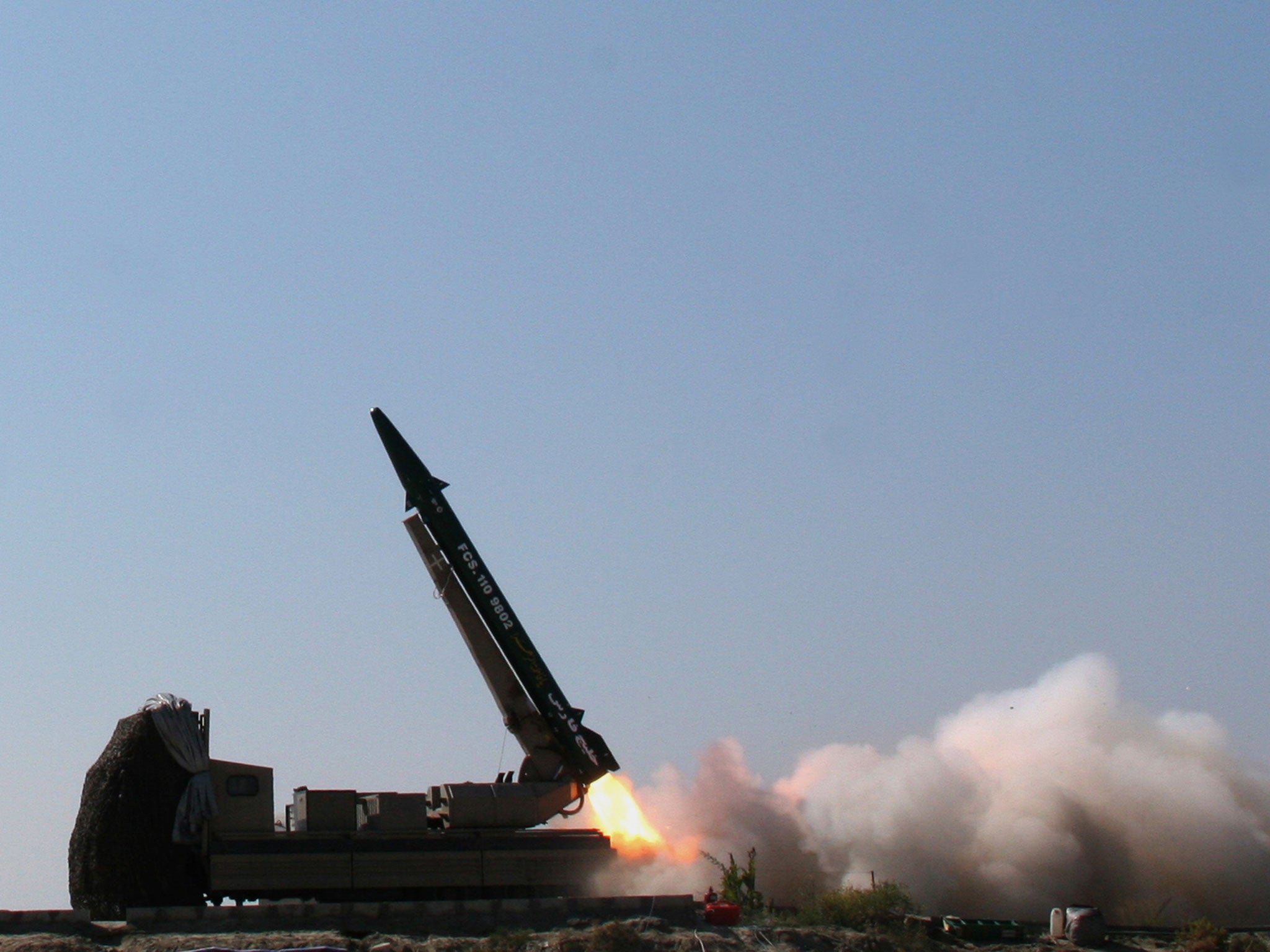UK 'powerless to stop potential Isis ballistic missile strike', former Navy commander claims
The MoD says Britain is already protected by 'robust and multi-layered security measures'

The UK must invest more to defend itself against the remote possibility of Isis “fruitcakes” launching a missile attack, a campaign group has said.
Commander Graham Edmonds, a former Navy anti-aircraft warfare specialist, claimed there was “nothing” Britain itself could do in the event of a strike from Syria.
The vice-chairman of the UK National Defence Association (UKNDA) told The Independent the Government was too reliant on Nato and the US for protection.
“What happens if Isis or a large organisation get their hands on a long-range ballistic missile and decides to fire it at London?” he asked.

“The answer is nothing – we have no system that can shoot down tactical ballistic missiles.”
Claiming warzones in the Middle East were “awash” with the rockets, he said Syrian and Iraqi forces possessed weapons with ranges of up to 2,500 miles that could have been seized by Isis.
The distance between London and the terrorist group’s de-facto capital of Raqqa is 2,200 miles, while just over 1,600 miles lie between England and its Libyan stronghold of Sirte.
Most military experts consider the possibility of Isis capturing or operating a long-range ballistic missile as extremely low, and the UK may be far down a list of possible destinations.
Commander Edmonds said he believed Portsmouth may be among potential British targets because of its large naval base and fleet of destroyers.
“If a bunch of fruitcakes like Isis got hold of a missile I don’t think they would care where it went,” he added.
“They could just lob it into the UK to make a point…you can’t guarantee what these people would do because they don’t behave rationally.”
During militants’ advance in Iraq and Syria in 2014 they seized weapons stockpiles left by fleeing government forces, including sophisticated weaponry of US and Russian origin.
Photographs of what appeared to be a captured Soviet-era Scud missile being paraded through Raqqa emerged in June 2014 but experts said the weapon – which has an optimum range of 450 miles – would most likely inoperable.
Propaganda issued by Isis in May last year claimed it could soon buy its first nuclear weapon while India alleged that Pakistan could be a possible supplier, despite the neighbouring country’s assertions to the contrary.
Ballistic missile protection in the UK is mostly reliant on Nato systems combining land and sea defences based in Turkey, Romania, Poland and Spain, among other nations.
The Ministry of Defence (MoD) says the country is full protected, citing other threat-reducing measures and a pledge to invest in new radar, but the UK National Defence Association is campaigning for an upgrade that would allow Royal Navy Type 45 Destroyers to take out ballistic missiles themselves.
“We have robust and multi-layered security measures in place and continually review them to ensure their effectiveness,” a spokesperson for the MoD said.
“Nato is the bedrock of our national defence and helps protect the UK and its allies from threats.
“Recent investment in our Ballistic Missile Defence demonstrates this Government’s commitment to keeping Britain safe.”
The UK is attempting to reduce the threat posed by ballistic missiles from hostile countries and terrorist groups using arms control and other methods.
Investment for a ground-based radar to increase the Nato system’s coverage was announced last year and the potential for a destroyer upgrade is being “investigated”.
Join our commenting forum
Join thought-provoking conversations, follow other Independent readers and see their replies
Comments
Bookmark popover
Removed from bookmarks